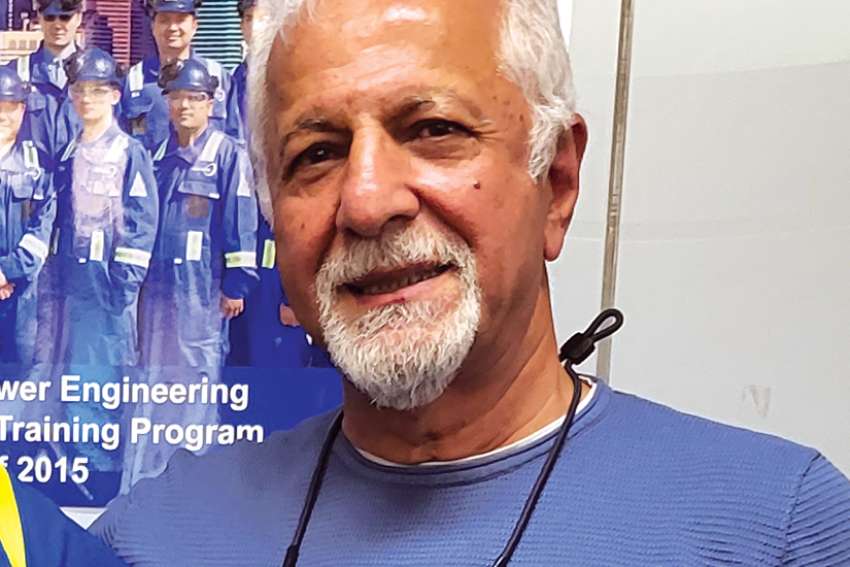But Birjandian said his team made a special effort to introduce newcomers to the potential of a life in western Canada. It worked as early clients enjoyed the experience and that translated into positive word of mouth, said Birjandian, who came to Canada as a refugee himself, arriving from Iran in 1987.
“People heard about the work and the services they could receive by coming to Calgary. When people found out through conversations with people they were related to and connected with, they would go, ‘Calgary. Wow, let’s go there,’ because the people they knew did amazingly well when they did come here,” he said.
In collaboration with the Alberta government and others, CCIS staff works to provide clients, including asylum seekers, with housing, a work permit and enrolling children in the school system. While they await their work permit, CCIS ensures the new Canadian is eligible for provincial financial support. It provides this key sustenance up to the point a work permit comes through and he or she receives a job, or if that individual starts collecting aid from provincial social services.
Dramatic growth in the number of staff and volunteers over Birjandian’s tenure makes this high level of support possible. When Birjandian became CEO nearly three decades ago, he started with 30 staff working out of a basement at St. Mary’s High School. Now, just a few months away from stepping back into a consultant role, Birjandian commands a team of 450 staff and 2,000 volunteers.
Since January, 624 new persons have accessed CCIS’ Refugee Claimants Transitioning into the Community (RCTC) program, joining the 1,433 individuals utilizing RCTC services since 2020. Sixty-eight per cent of the refugee claimants since 2020 are between the ages of 25-44, and over 90 per cent have received at least a high school education — 37 per cent are armed with a college or university degree and 18 per cent have technical or vocational training. Fifty-eight per cent of the RCTC program members are currently employed (including 17 per cent full time) and 42 per cent are receiving Alberta Works Income Support.
This comes on the heals of an increased influx of asylum seekers to Canada. The RCMP announced in late September that the numbers crossing the border has reached a six-year-high.
The months to come are poised to remain busy as CCIS welcomes refugees from countries including Afghanistan and Ukraine. Birjandian, who is also co-chair of the National Afghan Refugee Resettlement Project, recently welcomed over 5,000 Afghan refugees to Calgary.


